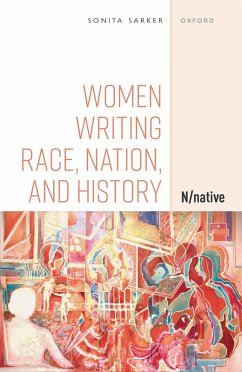This book presents how Nation and Narrative are bound together through the figure of the "N/native" as it appears in the non-fictional writings of Cornelia Sorabji, Grazia Deledda, Zitk?la-%S?, Virginia Woolf, Victoria Ocampo, and Gwendolyn Bennett. It addresses two questions: How did women writers in the early twentieth century tackle the entangled roots of political and cultural citizenship from which crises of belonging arise? How do their narrative negotiations of those crises inform modernist practice and modernity, then and now? The "N/native" moves between "born in" and "first in" in the context of the modern nation-state. In the dominant discourses of post-imperial as well as de-colonizing nations, "Native" is relegated to Time (static or fetishized through nostalgia and romance). History is envisioned as active and contoured, associated with motion and progress, which the "native" inhabits and for whom citizenship is a political as well as a temporal attribute. The six authors' identities as Native, settler, indigenous, immigrant, or native-citizen, are formed from their gendered, racialized, and classed locations in their respective nations. Each author negotiates the intertwined strands of Time and History by mobilizing the "N/native" to reclaim citizenship (cultural-political belonging). This study reveals how their lineage, connections to land, experiences in learning (education), and their labor generate their narratives. The juxtaposition of the six writers keeps in focus the asymmetries in their responses to their times, and illustrates how relevant women's/feminist production were, and are in today's versions of the same urgent debates about heightened nativisms and nationalisms
Dieser Download kann aus rechtlichen Gründen nur mit Rechnungsadresse in A, B, BG, CY, CZ, D, DK, EW, E, FIN, F, GR, HR, H, IRL, I, LT, L, LR, M, NL, PL, P, R, S, SLO, SK ausgeliefert werden.

